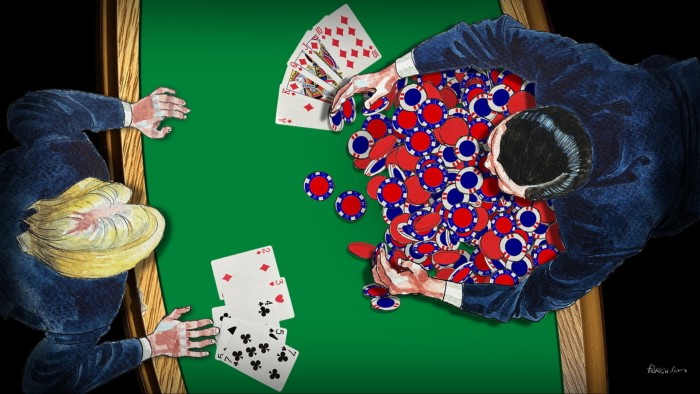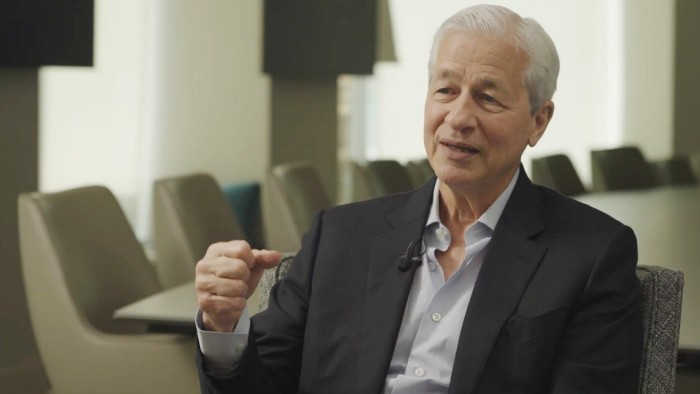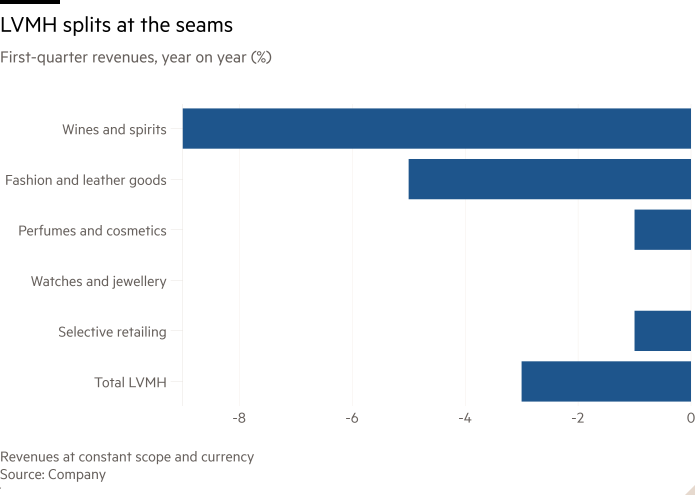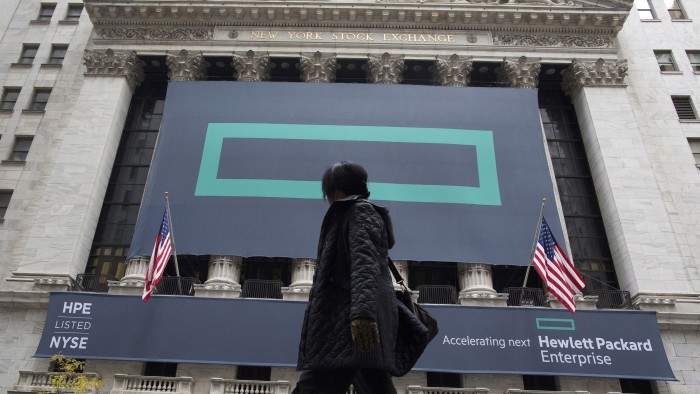Why Xi holds a stronger hand than Trump

Unlock the White House Watch newsletter for free
Your guide to what the 2024 US election means for Washington and the world
When in doubt use block capitals. “NOBODY is ‘getting off the hook” insisted Donald Trump on Sunday — in a confusing clarification to an earlier announcement that the US would exempt smartphones and consumer electronics from tariffs. That exemption was itself a change to last week’s policy, announcing 145 per cent “reciprocal” tariffs on all goods from China — which was itself a dramatic increase to rates announced a few days earlier. Are you following?
A casual observer might think that all these sudden shifts in tariff policy is evidence of chaos in the White House. Trump fans beg to differ. Bill Ackman, a financier, hailed a previous screeching U-turn as “brilliantly executed . . . Textbook, Art of the Deal.”
The president’s most ardent supporters continue to insist that he is a master strategist. Those who suggest otherwise risk being accused of Trump Derangement Syndrome.
Unfortunately I am still afflicted with TDS. (The vaccine has been banned.)
To my feverish mind, it looks like Trump has a much weaker hand than he thought in the game of tariff poker that he is playing with China. The longer it takes for Trump to accept this definitively — the more he and the US stand to lose.
The starting assumption of Trump and his trade warriors is that China is automatically at a disadvantage in a conflict over tariffs. Scott Bessent, the US Treasury secretary, argued that China is “playing with a pair of twos . . . We export one-fifth to them of what they export to us, so that is a losing hand for them.”
The flaws in Trump and Bessent’s logic are lucidly explained in a recent article by Adam Posen in Foreign Affairs. As Posen points out, the fact that China exports far more to the US than the other way around is actually a source of leverage for them — not a weakness.
The US is not buying products from China out of charity. Americans want what China makes. So if those products become much more expensive — or disappear from the shelves altogether — Americans will suffer.
The significance of the agonising over smartphones is that Trump has finally had to tacitly acknowledge something that he has always denied — tariffs are paid by importers not exporters.
More than half the smartphones sold in America are iPhones and 80 per cent of those are made in China. Americans will complain loudly if they more than double in price. “Liberation day” was not supposed to mean liberation from their smartphones.
Phones and computer equipment are the most obvious candidates for a climbdown. They are not isolated examples. Trump will have to hope that it is not a hot summer because about 80 per cent of the world’s air conditioners are made in China; along with three quarters of the electric fans America imports. The White House will certainly want the trade war to be over by Christmas because 75 per cent of the dolls and bicycles that the US imports are also made in China.
Can all this stuff be made in America? Just possibly. But it will take time to set up new factories and the end products will be more expensive.
Trump hates bad headlines and will want them to go away. So rather than endure the pain of shortages and inflation, he is likely to add more and more items to the list of goods that are exempt from tariffs.
Under these circumstances, China can afford to play a waiting game. But if Beijing decides to get nasty then it has some really powerful tools that it can deploy. China makes almost 50 per cent of the ingredients that go into the antibiotics that Americans depend on. The F35, the backbone of the US Air Force, requires rare-earth components sourced from China. The Chinese are also the second-largest foreign owners of US Treasury bonds — which could matter at a time when the market is under strain.
Even if the Trump administration can find a category of imports that nobody in America will miss — it seems unlikely that it can inflict game-changing damage on China.
The American market represents only about 14 per cent of Chinese exports. Joerg Wuttke, the former head of the European Chamber of Commerce in Beijing, argues that American tariffs are “inconvenient, but it’s not going to be a threat to the economy . . . It’s a $14tn-$15tn economy and the exports to the US are $550bn.”
The White House keeps suggesting plaintively that President Xi Jinping should pick up the phone and call. But with Trump in headlong retreat, there is no incentive for the Chinese leader to talk — let alone plead for mercy.
An authoritarian system — tightly controlled by the Chinese Communist party — is also probably better prepared to absorb a period of political and economic pain than the US, where economic turmoil swiftly translates into political pressure.
Xi is perfectly capable of making bad mistakes of his own. China’s handling of the Covid-19 pandemic proved that. But the Chinese have been preparing for a trade showdown with the US for a long time — and have thought through their options. By contrast, the White House is making it up as it goes along.
Trump has dealt himself a losing hand. Sooner or later he is going to have to fold. Textbook Art of the Deal!






